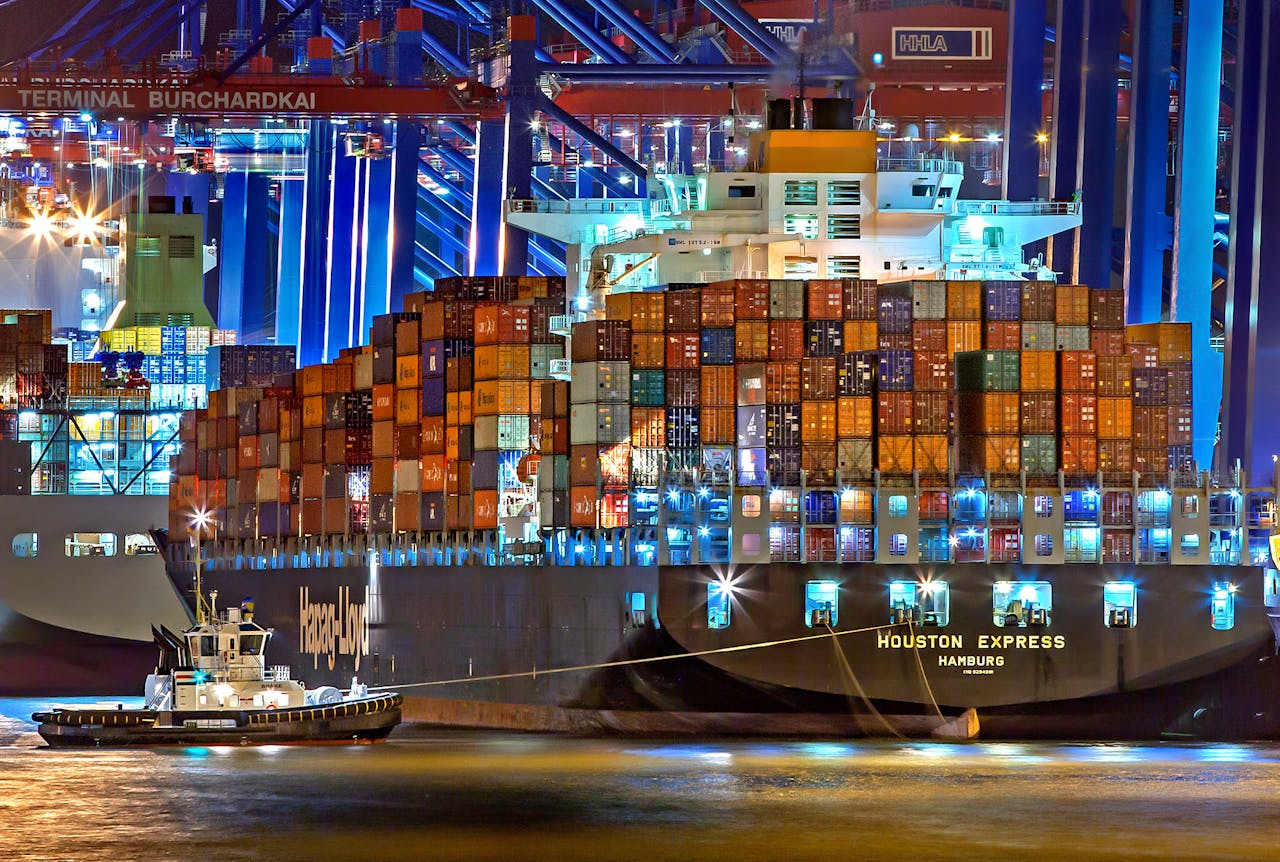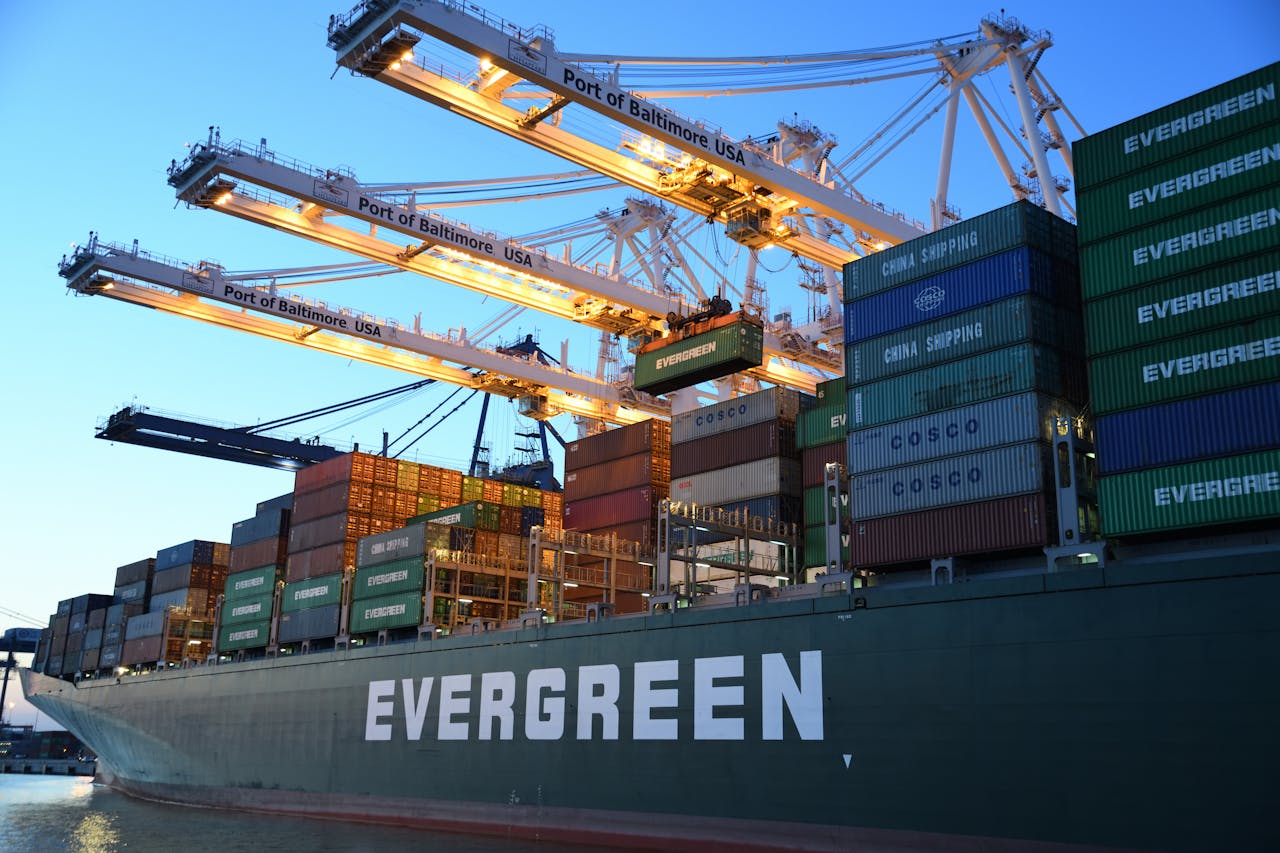Freight Automation and Artificial Intelligence Consulting

Freight automation and artificial intelligence consulting offer comprehensive solutions that revolutionize how goods are transported and managed across the globe. It’s a dynamic juncture where logistics meets cutting-edge technology, propelling the freight industry into a new era of smart, efficient, and reliable operations.
What’s the Role of Freight Automation and Artificial Intelligence Consulting Today?
Freight automation and artificial intelligence consulting focus on integrating advanced technological solutions into the freight and logistics industry. They aim to reduce manual intervention, increasing operations’ speed, accuracy, and efficiency.
Therefore, freight automation and artificial intelligence consulting are about strategically implementing these technologies to transform how goods are moved and managed, analyzing the specific needs and challenges of a freight operation, and devising tailored AI and automation strategies.
Importance of Freight Automation and Artificial Intelligence Consulting Today

This consulting can substantially reduce operational costs by optimizing routes, predictive maintenance, and resource allocation. This is particularly crucial in a competitive market where cost efficiency can be a key differentiator. Moreover, since the dynamic nature of the logistics market requires businesses to be highly adaptable, AI and automation offer the agility to swiftly respond to changing consumer demands and market conditions.
However, freight automation and artificial intelligence consulting have countless benefits for companies. Some of the main advantages are as follows:
- Enhanced Accuracy and Reliability: Automation reduces the likelihood of human error, while AI provides reliable predictions and real-time data analysis, ensuring higher accuracy in operations and decision-making.
- Improved Customer Service: With real-time tracking, predictive delivery times, and automated customer notifications, businesses can offer superior customer service, enhancing satisfaction and loyalty.
- Scalability: Automation and AI systems can easily scale to accommodate growth and handle increased volumes, making them ideal for businesses looking to expand their operations.
- Sustainability: Optimized routes and efficient operations contribute to lower emissions, while AI can assist in planning and implementing sustainable practices throughout the supply chain.
- Competitive Advantage: Businesses that adopt freight automation and artificial intelligence consulting can gain a significant competitive edge by offering faster, more reliable, and cost-effective services.
How Does Freight Automation and Artificial Intelligence Consulting Differ from Traditional Market Research?
Freight automation and artificial intelligence consulting differ from conventional market research regarding their emphasis, approaches, and ultimate objectives. Although both are instrumental in business growth and strategic planning, they fulfill distinct roles:
- Focus and Objective: Traditional market research primarily aims to understand market trends, customer behavior, and competitive landscapes. In contrast, freight automation and AI consulting focus on optimizing logistics and supply chain operations using advanced technology.
- Application and Implementation: The insights from market research are typically used to inform marketing strategies, product development, and customer engagement initiatives. Meanwhile, freight automation and AI consulting directly impact operational processes such as route optimization, inventory management, and automated warehousing.
- Outcome: The outcome of market research is usually a better understanding of the market and customer needs, leading to improved sales and marketing efforts. In contrast, the outcome of freight automation and AI consulting is increased operational efficiency, cost savings, and enhanced logistics performance.
Technologies and Tools Used in Freight Automation and Artificial Intelligence Consulting

In freight automation and artificial intelligence consulting, various specific technologies and tools are employed to enhance efficiency, accuracy, and decision-making in the logistics and transportation sector.
- Telematics and Fleet Management Systems: Brands like Samsara and Omnitracs offer advanced fleet management solutions that provide real-time data on vehicle locations, fuel usage, and driver behavior.
- Route Optimization Software: Tools like Route4Me and ORTEC enable optimized routing for deliveries, reducing fuel consumption and improving delivery times.
- Transportation Management Systems (TMS): Systems like SAP Transportation Management and Oracle Transportation Management provide comprehensive solutions for managing transportation operations.
Expected Results from Freight Automation and Artificial Intelligence Consulting
Engaging in freight automation and artificial intelligence consulting is expected to yield significant results for businesses, transforming various aspects of logistics and supply chain management – and here are some key outcomes that businesses can anticipate:
- Increased Operational Efficiency: Automation and AI can streamline many aspects of freight operations, from warehouse management to route planning, leading to increased overall efficiency.
- Cost Reduction: By optimizing routes, reducing fuel consumption, and minimizing idle time, AI and automation can help lower operational costs significantly.
- Improved Customer Satisfaction: With real-time tracking capabilities and predictive analytics, businesses can provide better customer service through timely deliveries and proactive communication.
- Sustainability Enhancements: Optimization of routes and reduction in idle time contribute to lower carbon emissions, supporting more sustainable freight practices.
- Competitive Advantage: Early adopters of freight automation and AI technologies can gain a competitive edge by offering faster, more efficient, and cost-effective services.
Opportunities
The integration of freight automation and artificial intelligence presents numerous opportunities for businesses in the logistics and supply chain sector. Here’s a brief look at some of these opportunities:
- Operational Excellence: Businesses can achieve operational excellence through streamlined processes, improved efficiency, and reduced human error. Automation and AI can enhance logistics operations, including inventory management, loading and unloading processes, and route optimization.
- Scalability and Flexibility: AI and automation solutions offer scalability, allowing businesses to efficiently manage increased volumes and adapt to market changes.
- Innovation and Market Competitiveness: Implementing cutting-edge technologies in freight operations can position businesses as market leaders and innovators in the logistics sector.
- Risk Management: Predictive analytics and intelligent decision-making tools help in identifying and mitigating potential risks in the supply chain.
- Expanding Business Horizons: Freight automation and artificial intelligence consulting open up new possibilities in logistics such as exploring new business models and expanding into new markets.
Challenges

Freight automation and artificial intelligence consulting also present certain challenges that businesses must navigate – and addressing these challenges is crucial for a successful implementation:
- Complex Integration Process: Seamlessly integrating new technologies with existing systems and processes can be complex and time-consuming, requiring specialized expertise.
- Data Privacy and Security Concerns: With the increasing reliance on data-driven solutions, ensuring the security and privacy of data becomes a critical challenge, particularly in the context of sensitive freight information.
- Technology Reliability and Dependence: There may be concerns about the reliability of AI and automation systems, especially in critical logistics operations. Overdependence on these technologies can pose risks in case of system failures.
- Ongoing Maintenance and Updates: AI and automation systems require continuous monitoring, maintenance, and periodic updates, which can be resource-intensive.
- Scalability and Future-proofing: Ensuring that AI and automation solutions are scalable and adaptable to future technological advancements and market changes is a key challenge.
SIS Solutions: Freight Automation and Artificial Intelligence Consulting
At SIS, we recognize the transformative potential of freight automation and artificial intelligence in revolutionizing the logistics and transportation industry. Our consulting solutions offer a strategic roadmap for businesses to seamlessly integrate automation and AI technologies into their freight operations, unlocking new efficiency, reliability, and sustainability levels. Here’s how we can help:
- Comprehensive Market Analysis: Our team conducts in-depth market analysis to identify emerging trends, technological advancements, and competitive dynamics within the freight and logistics industry. We provide insights into how automation and AI reshape freight operations and offer strategic recommendations to capitalize on new opportunities.
- Customized Solution Development: We develop customized automation and AI solutions tailored to address our clients’ freight operations’ specific challenges and operational contexts.
- Stakeholder Engagement: We engage all stakeholders, including operational staff, management, and external partners, to understand different perspectives and ensure the solutions meet their requirements. Effective stakeholder engagement is crucial for successfully implementing and adopting automation and AI technologies in freight operations.
- Expertise and Training: We provide expertise and training to ensure that staff are adequately trained to work with new automation and AI technologies. Additionally, we tap into specialized expertise, either in-house or through external consultants, to enhance the success of these initiatives.
- Regulatory Compliance and Security: We ensure that the automation and AI solutions comply with all relevant regulations and standards, mitigating the risk of non-compliance. Data privacy, cybersecurity, and regulatory compliance are top priorities in our consulting approach.
- Continuous Monitoring and Optimization: We provide ongoing support to monitor the performance of automation and AI systems, identify areas for improvement, and optimize their performance. Constant monitoring and optimization are essential for long-term success and adaptation to evolving needs in freight operations.
- Integration with Existing Infrastructure: We help businesses integrate new automation and AI technologies seamlessly with their freight systems and infrastructure. Compatibility, scalability, and minimal disruption are key considerations in our integration approach.
Partner with SIS for comprehensive freight automation and artificial intelligence consulting solutions that drive innovation, efficiency, and sustainability in the logistics and transportation industry. With our strategic approach and industry expertise, we help clients unlock the full potential of automation and AI to create smarter, more efficient, and reliable freight networks.
Our Facility Location in New York
11 E 22nd Street, Floor 2, New York, NY 10010 T: +1(212) 505-6805
About SIS International
SIS International offers Quantitative, Qualitative, and Strategy Research. We provide data, tools, strategies, reports, and insights for decision-making. We also conduct interviews, surveys, focus groups, and other Market Research methods and approaches. Contact us for your next Market Research project.

